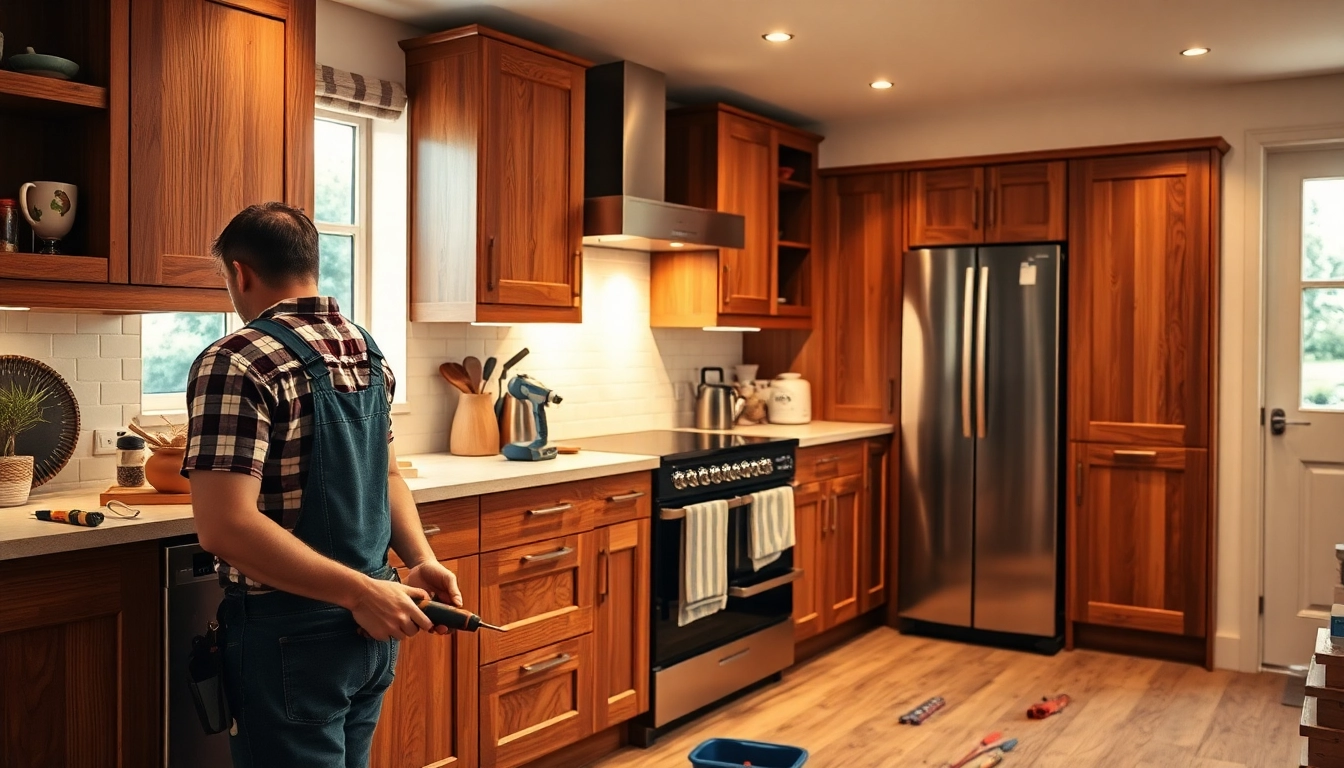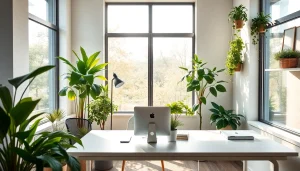Find Trusted DIY Kitchen Fitters Near Me for Seamless Installations
Understanding Your Needs: Choosing the Right DIY Kitchen Fitter Near Me
Embarking on a kitchen renovation can be daunting, especially when it comes to choosing the right DIY kitchen fitter near me. This professional will not only help transform your kitchen but also ensure that the project is completed smoothly and efficiently. To get started, it’s essential to understand your needs—this involves assessing your kitchen space, budget, timeline, and the specific skills required for the job.
Assessing Your Kitchen Space and Layout
The first step in defining your needs is to assess your kitchen space and layout. Consider the following:
- Size and Shape: Take precise measurements of your kitchen area. Knowing the size helps in deciding the type of cabinets, countertops, and appliances that can fit.
- Current Layout: Evaluate the current layout. Is it functional? Would you like an open concept or a traditional layout? This will guide you in identifying if you need structural changes.
- Style Preferences: Determine the style you want to achieve. Modern, rustic, or traditional? Understanding your preferred aesthetic will help in collaborating with your fitter effectively.
Determining Your Budget and Timeline
Setting a realistic budget and timeline is crucial. Consider the following factors when estimating your costs:
- Materials: Different materials—like granite versus laminate countertops—carry varying price points. Research the quality and durability of your options.
- Labor Costs: DIY kitchen fitters may charge differently based on their experience and expertise. Get estimates from multiple sources.
- Timeline: Determine how long you can be without kitchen access. This is essential for planning installations and coordinating with your fitter.
Identifying Necessary Skills and Services
Every kitchen project requires a different set of skills, depending on what renovations or installations you’re planning. Make a list of necessary services:
- Cabinet Installation: Proper fitting is crucial for achieving both aesthetics and functionality.
- Countertop Installation: Different materials require different installation techniques—from laminate to granite.
- Plumbing and Electrical Work: Check if you need certified professionals for plumbing or electrical adjustments, particularly for appliances.
Locating Top DIY Kitchen Fitters Near Me
Once you have a clear understanding of your requirements, the next step is to locate qualified DIY kitchen fitters in your area. This is an essential phase involving thorough research.
Researching Local Fitters and Their Credentials
Start by gathering a list of local kitchen fitters. Ensure that you check their qualifications and certifications. Look for professionals who have:
- Experience: Years in the industry often translate to better skill levels.
- Licenses: Check if they hold necessary local licenses to perform installations.
- Insurance: Proper insurance ensures that you are protected in case of accidents during the fitting process.
Reading Reviews and Testimonials
Online reviews and testimonials can provide significant insights into a fitter’s reliability and workmanship. Look for:
- Google Reviews: Clients often share their experiences here.
- Social Media Feedback: Platforms like Facebook allow for community input.
- Before and After Galleries: These visual testimonies can showcase a fitter’s work quality.
Networking for Referrals in Your Community
One of the most effective ways to find a reliable DIY kitchen fitter near you is through networking. Ask friends, family, or colleagues for recommendations. Local community boards or online forums can also help you connect with individuals who have had positive experiences.
Evaluating DIY Kitchen Fitter Options
After narrowing down potential candidates, it’s time to evaluate your options more closely. This phase plays a vital role in ensuring you select the best fitter for your project.
Comparing Estimates and Services Offered
When you gather estimates, focus not only on the cost but also services provided. Compare:
- Base Costs: Ensure you understand what the base price covers.
- Inclusions: Confirm what services are included—some fitters may offer additional perks, like cleanup, that others do not.
- Payment Terms: Look for flexibility in payment terms and whether any upfront deposits are required.
Questions to Ask Potential Fitters
Before making your final selection, asking the right questions can provide clarity. Consider inquiring about:
- Availability: When can they start and finish the project?
- Experience with Similar Projects: Have they done installations similar to what you envision?
- Problem-Solving Approaches: How do they handle unexpected challenges that arise during installation?
The Importance of Portfolio Evaluations
A portfolio is a critical tool in assessing a fitter’s past work. Look for:
- Diversity of Projects: A varied portfolio indicates versatility in design and execution.
- Quality of Work: Pay attention to the details—are the finishes neat and aligned?
- Clientele: Reputable fitters often showcase projects done for well-known clients.
Preparing for Your Kitchen Fitting Project
Thorough preparation is key to a successful kitchen installation project. The steps taken prior to installation can significantly influence the overall experience and outcome.
Necessary Pre-Installation Steps for a Smooth Process
Before your fitter arrives, ensure you have completed the following:
- Declutter: Remove items from the kitchen to create a free workspace.
- Confirm Materials: Double-check that all materials (cabinets, countertops, etc.) are ordered and will arrive on time.
- Access: Ensure the fitter has clear access to your home and kitchen area.
Coordinating Schedules with Your Fitter
Effective communication about scheduling is crucial:
- Availability: Ascertain when both you and the fitter are available for work.
- Timing: Discuss the estimated time each installation step will take.
- Contingency Plans: Agree on how to handle any delays or issues that may arise.
Common Challenges and Their Solutions
No renovation project is devoid of challenges. Be prepared to address potential issues, such as:
- Delayed Deliveries: Always order materials well in advance and confirm delivery dates.
- Unexpected Structural Changes: Prepare for surprises like plumbing or wiring issues once cabinets are removed.
- Alignment Problems: Discuss with your fitter how they will ensure straightness and stability.
Post-Installation: What to Expect from Your DIY Kitchen Fitter Near Me
Once the installation is complete, there are still important steps to follow to ensure satisfaction with your new kitchen.
Final Walkthroughs and Quality Checks
Performing a final walkthrough is essential:
- Inspect All Work: Check the installation and finish of all cabinets, countertops, and fixtures.
- Make Sure All Functionality Works: Test cabinets, drawers, and appliances to ensure proper function.
- Document Findings: Take photos or notes of any discrepancies for reference.
Understanding Warranties and Aftercare
Inquire about warranties and aftercare:
- Warranties: What does the warranty cover, and how long does it last?
- Aftercare: Are there recommended maintenance practices for your new kitchen?
Gathering Feedback and Sharing Your Experience
Your experience can significantly help others looking for kitchen fitters:
- Providing Reviews: Take a few moments to leave reviews based on your experience.
- Sharing Before and After Photos: Visuals can guide others in their decisions.
- Referrals: If you had a positive experience, referring the fitter to friends or family can be valuable.


